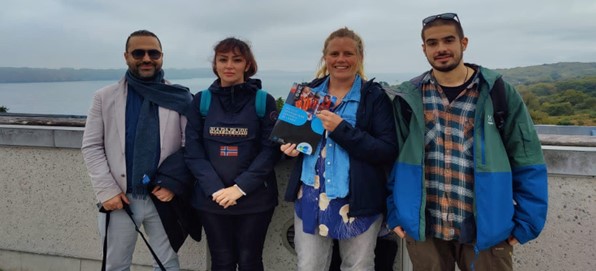In 2022, the theme of the FINA Award was “Oceans”. The 4 Nordic laureates travelled to France for a week of scientific mobility in Brest and Paris, including daily visits to French institutions dedicated to ocean research: the French Institute for Research for the Exploitation of the Sea (IFREMER), the European Institute for Marine Studies (IUEM), the World Sea Campus, the Pôle de Compétitivité Bretagne Atlantique, the Sorbonne, and the European Centre for Marine Biological Resources (EMBRC).
The laureate of the French Institute of Norway, Apostolos Tsiouvalas, researcher at the Norwegian Centre for the Law of the Sea (University of Tromsø) and the Center of Circumpolar Security Studies (Arctic Institute, Washington DC), shares with us the highlights of his mobility (October 2-8, 2022).
Monday, October 3rd: Visit of the Brest Technopole research campus, where IFREMER and IUEM are located.
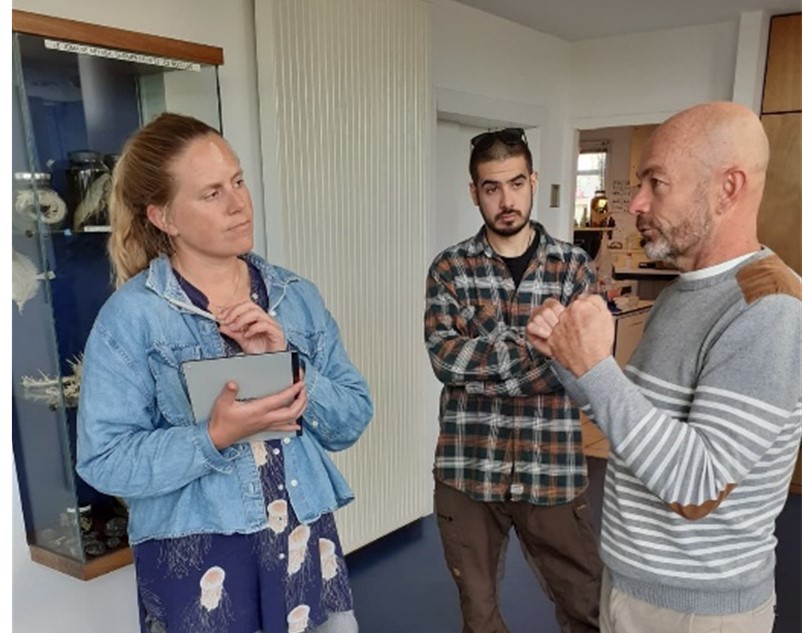
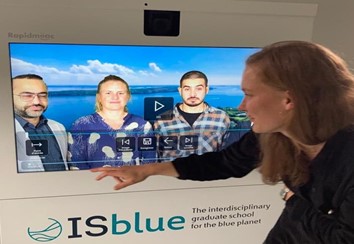
Tuesday, October 4th: Visit of the Campus Mondial de la Mer, the first community of experts in France in the study and economic development of the ocean.
Discussion of avenues for future collaborations.
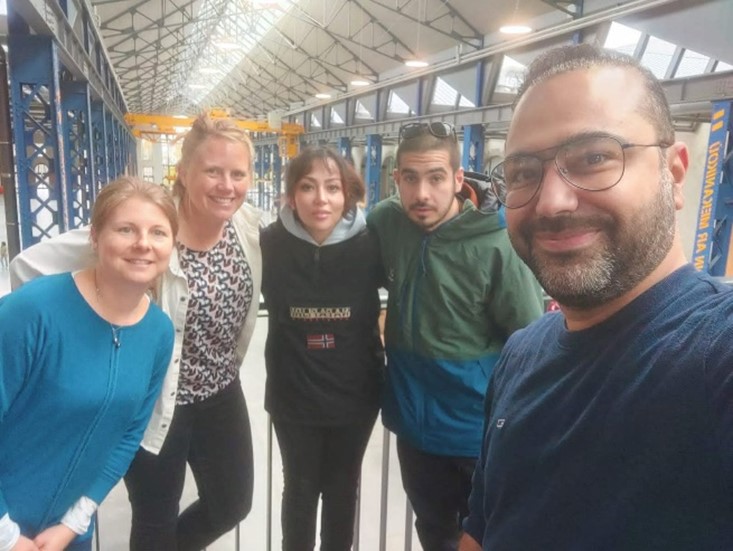
Wednesday, October 5th: Personalized visit for Apostolos: interview with Anne Choquet, Polar Law Lawyer and Vice-President of the French National Committee for Arctic and Antarctic Research (CNFRA).
Discussions on current legal issues related to the law of the sea and visit of joint research unit AMURE (Development of Uses of Resources and Marine and Coastal Spaces), a center of law and economy of the sea, which is increasingly focused on circumpolar affairs.
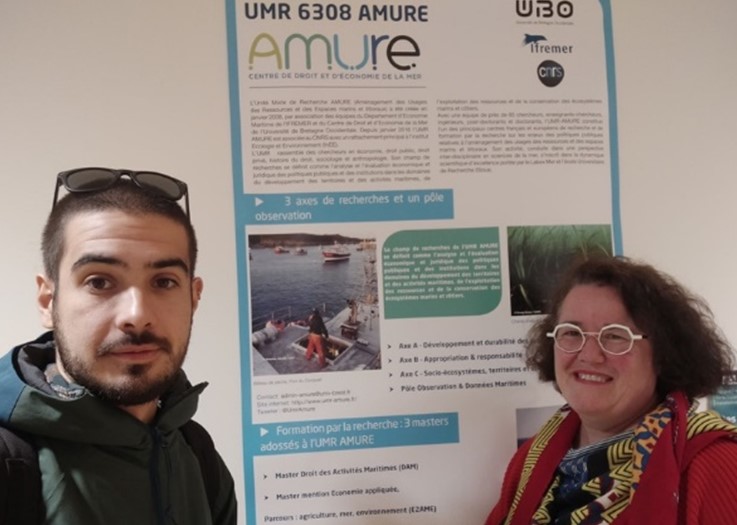
Visit, with the other laureates, of the Pôle de Compétitivité Mer Bretagne Atlantique, which brings together more than 400 members and aims to foster innovation in the field of the blue economy.
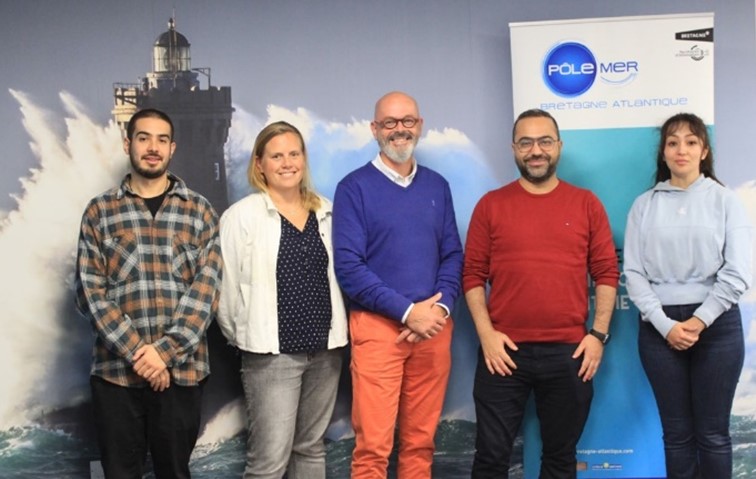
Wednesday, October 5th: First day in Paris, with a visit to the European Marine Biological Resources Centre (EMBRC) at the Sorbonne.
Discussions on career directions and different sources of research funding.
Thursday, October 6th: Visit to the Ministry of Foreign Affairs and meeting with Jacques Raharinaivo, deputy to the Ambassador to the Poles and Maritime Issues.
Presentation of French policy and aspirations in the Arctic and Antarctic.
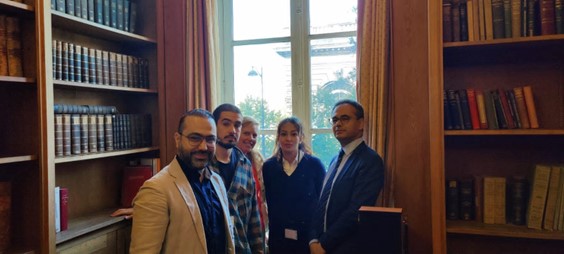
« The French Institute Nordic Award (FINA) offered me a unique opportunity that could shape my scientific career in the future.
The diversity of expertise within our group (international law of the sea, marine noise and toxicology, marine chemistry and microplastic pollution), has created an extremely interesting atmosphere and discussion path, and gave us the opportunity to engage in interdisciplinary conversations that go beyond our core research areas.
In addition, the wide variety of the programme and the diversity of the institutions we visited provided a comprehensive account of France’s growing role and commitment in ocean research, which is indeed considerable.
Finally, my personalised research at the AMURE Centre for the Law and Economy of the Sea has enabled me to expand my research network on the Law of the Sea beyond the Nordic countries and prepare the ground for future collaboration on Law of the Sea and Arctic issues.
As the One Ocean Summit demonstrated last February in Brest, the challenges currently facing our oceans are closely linked and must be considered in their entirety.
Interdisciplinarity and cross-border collaboration are imperative in the international research community, and these exchange opportunities are therefore crucial for graduate students.
I hope that this mobility is only the first step in my collaboration with the French research centres, which have really demonstrated their institutional capacity and professional skills throughout the week of mobility. I would like to thank the four French Institutes for coordinating the trip and for giving me the opportunity to travel to France with Asal Peydaei, Rami El Dairi and Anna Lund Hermansson, representing the French Institutes of Denmark respectively, of Finland and Sweden. »
